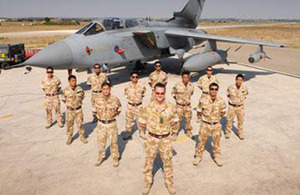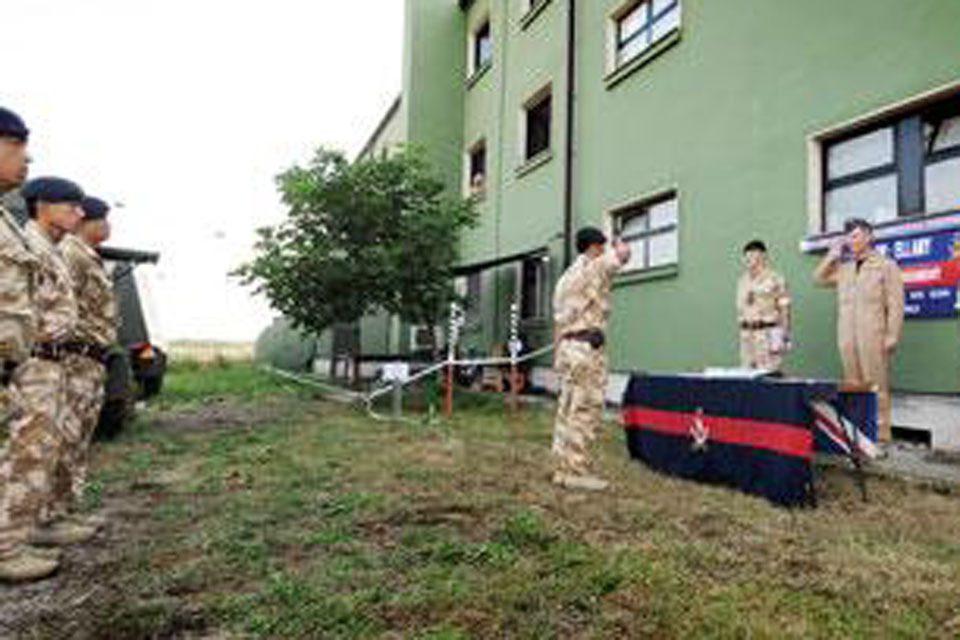Gurkhas help support Libya operations
A small but highly-motivated team of Gurkhas is working hard to provide essential communication lines for the NATO-led missions over Libya.

A detachment of soldiers from 248 Gurkha Signal Squadron is currently supporting the RAF at Gioia del Colle as part of Operation ELLAMY [Picture: Crown Copyright/MOD 2011]
Without the specialist communications expertise provided by the members of 248 Gurkha Signal Squadron, part of the Queen’s Gurkha Signals, the RAF’s dealings with NATO commanders leading the operation would be slowed dramatically.
248 Gurkha Signal Squadron is equipped with NATO’s advanced Richelieu digital communications systems, primarily used to support the NATO ARRC (Allied Rapid Reaction Corps) Headquarters.
Lieutenant Alex Cave, Officer in Charge of the 248 Gurkha Signal Squadron detachment at Gioia del Colle, explained:
We are working in support of the RAF; the RAF provide the majority of the communications systems through the Tactical Communications Wing, but because this is a NATO-led operation, NATO personnel based at Headquarters in Poggio use a unique NATO communications network which is something the RAF do not usually cater for; that’s where we fill the gap.
Personnel based at Gioia del Colle and Trapani receive Air Tasking Orders (ATOs) containing classified information from the Command Allied Operations Centre based in Poggio.

Members of the Queen's Gurkha Signals celebrate the regiment's 62nd birthday at Gioia del Colle air base in southern Italy [Picture: Crown Copyright/MOD 2011]
248 Gurkha Signal Squadron personnel ensure the ATOs are received by those that need them, facilitating the free flow of essential ‘comms’. The Gurkha signallers’ skills, kit and experience - gathered over more than 60 years in the British Army - allow for a highly focused and efficient operation.
Sergeant Lalit, second-in-command of the detachment, said:
We’re here to do a job; our training ensures that we’re very focused on the task and we just get on with what we need to do.
Working with the RAF is a great privilege for us, and we’re enjoying working together in a friendly environment.
One of the soldiers from the squadron in Italy at the moment is Lance Corporal Agnesh Rai who joined the British Army in 2005. Like many young men growing up in Nepal, he had always wanted to join the Gurkhas, and relishes the opportunities it presents:
I wanted to see the world and maintain my family tradition, as my uncle was in the Gurkhas too,” he said. “It’s adventurous, I get to deploy to lots of different places, meet different people and keep fit.
My family in Nepal are very proud that I’m in the British Gurkhas, and I am proud to serve,” he added.